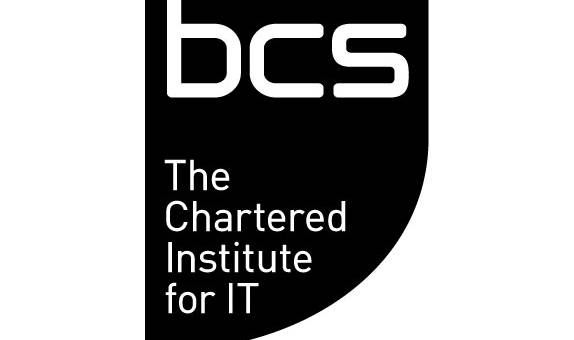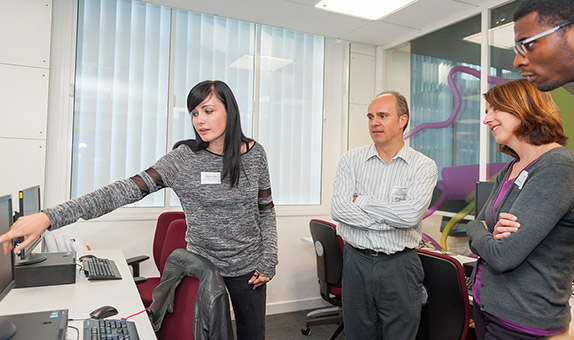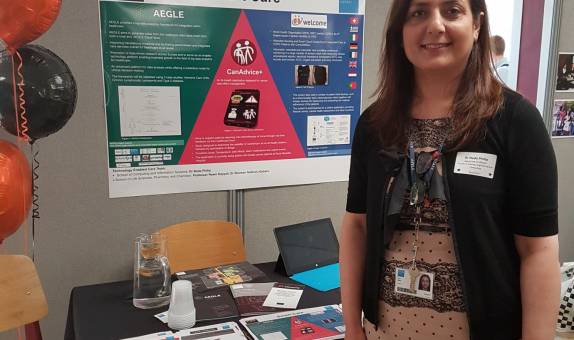Software Engineering MSc
Why choose this course?
Some of the most challenging problems in industry and commerce are associated with software development. On this course, you will examine all stages of the software development life cycle at an advanced level. You will study software project management and business processes, software architecture and design aspects, implementation and software construction, testing and quality assurance. You will also acquire the practical skills for planning and implementing systems development projects. These projects will meet customer needs and integrate software solutions into the business environment.
You can combine this course with Management Studies, which will enable you to develop the skills to successfully lead teams and manage innovation.
| Mode | Duration | Attendance | Start date |
|---|---|---|---|
| Full time | 1 year | Software Engineering MSc | September 2024, January 2025, September 2025 |
| Full time | 2 years including professional placement | Software Engineering MSc | September 2024, January 2025, , September 2025 |
| Part time | 2–3 years | Software Engineering MSc | September 2024, January 2025, September 2025 |
| Full time | 1 year | Software Engineering with Management Studies MSc | September 2024, January 2025, September 2025 |
| Full time | 2 years including professional placement | Software Engineering with Management Studies MSc | September 2024, January 2025, September 2025 |
| Part time | 2–3 years | Software Engineering with Management Studies MSc | September 2024, January 2025, September 2025 |
| Main Location | Penrhyn Road |
Reasons to choose Kingston University
- You will gain in-depth understanding of strategies and architectures for designing and developing modern high-quality software applications.
- The Management Studies option will develop skills for managing teams and innovation. These skills are often sought after by employers and are invaluable if you aim to start your own business.
- Through a project dissertation, you will study an area of interest in depth. This can offer valuable industry experience.
Accreditation
The British Computer Society (BCS) accredits this course. This means that you can gain some exemption against BCS professional examinations, leading to Chartered membership and CEng, IEng or CSci status. For full details of exemption and accreditation levels, please check the BCS course search.
Please note: the programme delivered at our partner institution overseas is not currently accredited by the BCS.
The Faculty is a long-time member of BCS. For many years we have hosted meetings of the local BCS Kingston and Croydon Branch, contributing to members' continuing professional development programmes.
What you will study
You will study state-of-the-art concepts in software engineering and will focus on the fundamental concepts and principles of systems analysis, design, implementation and testing. The course focuses on the cost-effective development of high-quality software. You will also have an opportunity to improve your practical skills so that you can plan and conduct complex systems development projects to meet customer needs and integrate software solutions into an evolving business environment.
The Software Engineering course can be combined with Management Studies enabling you to set your technical knowledge in a management context and enable you to work effectively with business managers to develop systems for business advantage. An understanding of the business and management context is a key skill employers look for and essential for those aiming to set up their own business.
The full MSc course consists of an induction programme, four taught modules, and project dissertation. Please note that this is an indicative list of modules and is not intended as a definitive list.
For a student to go on placement they are required to pass every module first time with no reassessments. It is the responsibility of individual students to find a suitable paid placement. Students will be supported by our dedicated placement team in securing this opportunity.
Software Engineering MSc modules
Software Engineering with Management Studies MSc modules
Core modules
Agile Project Development
30 credits
This core module focuses on various approaches to agile development and deals with agile project and risk management, techniques, documentation and testing.
On successful completion of the module, you will be able to:
- Critically analyse and explain the concepts, strengths, limitations and suitability of agile development techniques.
- Develop appropriate use of project management qualitative techniques within an agile framework, such as feasibility study, planning, control and estimating, risk management and configuration management and quantitative techniques such as PERT and CPN.
- Apply management and team-building techniques to appropriately managing an information systems development project.
- Select and apply object oriented development techniques within an agile development environment.
- Critically discuss social and professional issues associated with information systems project and risk management.
- Manage the development of a system by applying an agile framework.
Software Architectures and Programming Models
30 credits
This core module aims to provide a strong theoretical and practical skills and techniques necessary to build high quality software architecture and system models. This module includes concept of software architecture as part of software design and reuse which can be viewed as components and interfaces. Practical aspects of service-oriented and component-based technologies, and the corresponding programming models and paradigms will be covered.
On successful completion of the module, you will be able to:
- Critically analyse architectural styles of software systems and evaluate the role of software architecture in the design and evolution of software.
- Apply the principles of software architecture construction, particularly using component- and service-oriented programming.
- Evaluate the benefits of software architectures and their corresponding programming paradigms in terms of software quality factors such as reusability, maintenance and extendibility.
- Apply technical proficiency in the component and service oriented analysis and design.
- Evaluate the strengths and weaknesses of service-oriented and component technologies.
- Build a complex business application that satisfies in architectural design using a service-oriented component technology.
Project Dissertation
60 credits
This module constitutes the major individual piece of work of the masters programme where the student carries out a project involving independent critical research, design and implementation (where applicable).
On successful completion of the module, students will be able to:
- Select, justify and use effectively the research methods and techniques appropriate for particular cases in order to carry out a literature search and an independent work of research
- Critically identify the need to position their research in the wider academic or business context and structure the dissertation format to agreed conventions
- Plan, manage and critically evaluate the project using the techniques and tools needed in order to bring it in successfully on time and within resourcing limits
- Identify and critically analyse real-world problems or knowledge gaps to which academic concepts and methods can be realistically applied to improve or resolve the problem situation
- Apply skills to show an ability to engage in academic and professional communication with others in their field through report and presentation
- Present critical awareness in applying appropriate legal, social or ethical obligations and when required, respond to the financial and other constraints of a corresponding business environment.
Software Quality Engineering
30 credits
Software Quality Engineering
This module aims to provide a systematic view of principles in software quality engineering and the formal theories and practical techniques involved in software quality assurance and software testing. The module will cover what software quality means and to how to achieve high quality in software developments.
On successful completion of the module, you will be able to:
- Describe the concepts and terms defined in software quality assurance, and the metrics together with related industrial standards for software evaluation.
- Explain the functions and importance of software quality assurance in the context of software development lifecycle management.
- Analyse the benefits and pitfalls of applying software quality assurance and testing plans in different software development contexts.
- Compare, evaluate and select appropriate tools for different software processes to achieve high quality software developments.
- Develop software quality assurance and testing strategies and plans for given projects.
Optional modules
User Experience Design (Systems)
30 credits
This module focuses upon the usability testing, detailed design and prototyping of single-user interaction with data-intensive, web services and applications via the desk-top, particularly for information seeking and shopping. The emphasis is upon quantitative measurement for optimisation and efficiency, effectiveness and satisfaction.
- Coursework: usability test report, prototype, presentation
- Schedule: allow approximately one day per week during the first semester
- Staff: Dr Martin Colbert
Applied Data Programming
30 credits
This module emphasises a practical and applied approach to programming and software skills for data scientists which differs from typical software engineering approaches in that the emphasis is on the use and manipulation of data using languages and platforms designed for use in real-life, data-driven problems. The languages and platforms are considered only as far as their use for data manipulation are needed with limited exploration of underlying theory or data structures. This prioritises practical implementation including locating, accessing, loading, manipulating, securing, storing and describing data, and enables the introduction of aspects of data analysis, data-mining and machine learning provided by the chosen languages and platforms.
Core modules
Agile Project Development
30 credits
This core module focuses on various approaches to agile development and deals with agile project and risk management, techniques, documentation and testing.
On successful completion of the module, you will be able to:
- Critically analyse and explain the concepts, strengths, limitations and suitability of agile development techniques.
- Develop appropriate use of project management qualitative techniques within an agile framework, such as feasibility study, planning, control and estimating, risk management and configuration management and quantitative techniques such as PERT and CPN.
- Apply management and team-building techniques to appropriately managing an information systems development project.
- Select and apply object oriented development techniques within an agile development environment.
- Critically discuss social and professional issues associated with information systems project and risk management.
- Manage the development of a system by applying an agile framework.
Software Architectures and Programming Models
30 credits
This core module aims to provide a strong theoretical and practical skills and techniques necessary to build high quality software architecture and system models. This module includes concept of software architecture as part of software design and reuse which can be viewed as components and interfaces. Practical aspects of service-oriented and component-based technologies, and the corresponding programming models and paradigms will be covered.
On successful completion of the module, you will be able to:
- Critically analyse architectural styles of software systems and evaluate the role of software architecture in the design and evolution of software.
- Apply the principles of software architecture construction, particularly using component- and service-oriented programming.
- Evaluate the benefits of software architectures and their corresponding programming paradigms in terms of software quality factors such as reusability, maintenance and extendibility.
- Apply technical proficiency in the component and service oriented analysis and design.
- Evaluate the strengths and weaknesses of service-oriented and component technologies.
- Build a complex business application that satisfies in architectural design using a service-oriented component technology.
Business in Practice
30 credits
This postgraduate module covers the theory and practice of the business and management needs of students from different academic contexts such as, but not limited to Science, Engineering, Computing and Health Services who are aspiring team leaders, managers, and entrepreneurs in business within the context of the commercial, public, voluntary, or academic sector.
Students will investigate business topics ranging from finance, accounting, budgeting, and marketing, to organisational management by developing the leadership skills to meet business challenges and to cope with their complexity.
The module will explain and put into context business concepts to graduates from a variety of sectors including those encompassed by Science, Engineering, Computing and Health Services.
Project Dissertation
60 credits
This module constitutes the major individual piece of work of the masters programme where the student carries out a project involving independent critical research, design and implementation (where applicable).
On successful completion of the module, students will be able to:
- Select, justify and use effectively the research methods and techniques appropriate for particular cases in order to carry out a literature search and an independent work of research
- Critically identify the need to position their research in the wider academic or business context and structure the dissertation format to agreed conventions
- Plan, manage and critically evaluate the project using the techniques and tools needed in order to bring it in successfully on time and within resourcing limits
- Identify and critically analyse real-world problems or knowledge gaps to which academic concepts and methods can be realistically applied to improve or resolve the problem situation
- Apply skills to show an ability to engage in academic and professional communication with others in their field through report and presentation
- Present critical awareness in applying appropriate legal, social or ethical obligations and when required, respond to the financial and other constraints of a corresponding business environment.
Software Quality Engineering
30 credits
Software Quality Engineering
This module aims to provide a systematic view of principles in software quality engineering and the formal theories and practical techniques involved in software quality assurance and software testing. The module will cover what software quality means and to how to achieve high quality in software developments.
On successful completion of the module, you will be able to:
- Describe the concepts and terms defined in software quality assurance, and the metrics together with related industrial standards for software evaluation.
- Explain the functions and importance of software quality assurance in the context of software development lifecycle management.
- Analyse the benefits and pitfalls of applying software quality assurance and testing plans in different software development contexts.
- Compare, evaluate and select appropriate tools for different software processes to achieve high quality software developments.
- Develop software quality assurance and testing strategies and plans for given projects.
Please note
Optional modules only run if there is enough demand. If we have an insufficient number of students interested in an optional module, that module will not be offered for this course.
Work placement scheme
Many postgraduate courses at Kingston University enable students to take the option of a 12-month work placement as part of their course. Although the University supports students in finding a placement and organises events to meet potential employers, the responsibility for finding the work placement is with the student; we cannot guarantee the placement, just the opportunity to undertake it. You may find securing a professional placement difficult as they are highly competitive and challenging, but they are also incredibly rewarding. It is very important to prepare and apply yourself if this is the route you wish to take. Employers look for great written and oral communication skills and an excellent CV/portfolio. As the work placement is an assessed part of the course, it is covered by a student's Student Route visa.
Find out more about the postgraduate work placement scheme.
Entry requirements
Teaching and assessment
Who teaches this course?
The course is taught at the School of Computer Science and Mathematics.
The School of Computer Science and Mathematics is driven by the philosophy of 'learning through making'; we focus strongly on facilitating a hands-on experience, student led and owned product portfolios and producing industry-ready graduates.
We utilise a range of innovating teaching and learning approaches in our invigorated and modernised degree programmes; combining studio practices, project-based learning, and context driven lectures to facilitate an informed approach to problem solving.
Postgraduate students may run or assist in lab sessions and may also contribute to the teaching of seminars under the supervision of the module leader.
What this course offers you
- This course equips you with an advanced knowledge of the latest methods and tools for software engineering.
- The project dissertation project gives you the chance to study an area of interest in greater depth and gain valuable research skills. It is usually relevant to your career so provides an excellent selling point when you are looking for a job or promotion. For example, one student produced an engineering design advice site in association with the Steel Construction Institute.
- If you are an overseas student, we will help you to carry out a project either based in your home country or that will be of specific relevance when you return home.
- The taught modules aim to prepare you for the job market. Alongside your academic studies, you gain skills in:
- problem solving and organisation
- data collation, review and synopsis
- communication (oral, written and electronic)
- time management
- cooperation and teamwork.
- Each module offers a stimulating balance of study, which may include lectures, practical lab work, group working, case studies and presentations. Industry experts often teach on the courses, enhancing your studies.
- You also have the chance to network with other professionals in the same situation as yourself. Our postgraduate students often set up study groups to support and encourage to each other.
- We offer part-time options to help you fit your studies around other commitments. This course is modular, with each module taught in a week-long block, allowing you to attend as you would for a short course.
- September and January start dates give you extra flexibility.
- Provided you choose appropriate modules, students initially registered for the Informatics MSc can often transfer to the Software Engineering course.
- We also offer a course in Software Engineering with Management Studies, which allows you to develop key business and management skills.
Facilities
There is a wide range of facilities at our Penrhyn Road campus, where this course is based. You will have access to a modern environment with the latest equipment, including:
- dedicated postgraduate computing laboratories - fully-equipped with fold-flat LCD screens, data-projection systems and high-spec processors
- state-of-the-art hardware and the latest software, including:
- development software and tools – such as Linux, Microsoft.net, Dreamweaver MX, Flash 8, Eclipse, Java 2 Standard and Mobile Editions, tools for Motorola and Nokia phones, UML and CASE tools and NXP Processors Development Kits
- Digital Signal Processors (dsPIC Digital Signal Controllers)
- IP Set Top Box development environment (NXP's STB810)
- Electronics Laboratory
- a mix of wireless LAN technologies.
- the learning resources centre, offering subject libraries, online database subscriptions and resource materials;
- a postgraduate teaching suite
- the dedicated Graduate Centre on campus, providing seminar rooms and social spaces.
Our dedicated team of IT technicians supports the labs and is always on hand to provide assistance.
Resources in London
Kingston is just a 30-minute train journey from central London, where you can access a wealth of additional libraries and archives, including the British Library and the Institute of Engineering and Technology.
Fees for this course
Additional costs
Depending on the programme of study, there may be extra costs that are not covered by tuition fees which students will need to consider when planning their studies. Tuition fees cover the cost of your teaching, assessment and operating University facilities such as the library, access to shared IT equipment and other support services. Accommodation and living costs are not included in our fees. Where a course has additional expenses, we make every effort to highlight them. These may include optional field trips, materials (e.g. art, design, engineering), security checks such as DBS, uniforms, specialist clothing or professional memberships.
After you graduate
The Faculty has a specialist employability team. It provides friendly and high-quality careers and recruitment guidance, including advice and sessions on job-seeking skills such as CV preparation, application forms and interview techniques. Specific advice is also available for international students about the UK job market and employers' expectations and requirements.
The team runs employer events throughout the year, including job fairs, key speakers from industry and interviews on campus. These events give you the opportunity to hear from, and network with, employers in an informal setting.
Graduates work for organisations such as IBM, Hewlett Packard, Capgemini, JDA Software, Ernst & Young, Marks & Spencer, Waitrose, Virgin Media, Sky and the NHS Institute for Innovation and Improvement.
What our graduates say
Examples of student work
Wireless remote for Avolites lighting consoles
During his Software Engineering MSc, Des Willans was working for Avolites, a small but specialist company based in west London, which manufactures lighting consoles, dimmers and a number of other lighting control units for the production lighting industry. Its products are used worldwide for TV, film and music events, including the Bond film Casino Royale and The Killers tour.
Des developed an application enabling remote control of Avolites consoles over a wireless LAN. This allows lighting fixtures to be controlled so that pre-programmed scenes and effects can be triggered from anywhere in an event arena.
Avolites consoles run on an embedded Windows XP operating system, including Microsoft's Web Server IIS, which hosts Des' user interface. Des enhanced the console with a .NET Web Service written in C# to expose console commands to applications and an ASP.NET application to provide a user interface accessible by handheld PDA browsers.
Links with business and industry
Industrial Advisory Board
To ensure your studies are kept up to date and answer the needs of business, our courses are created and reviewed in consultation with an advisory board of key industry experts and senior academics. The Board also provides input and advice on our research portfolio.
With members from Google, Microsoft, EasyJet, games developer Colossal and Chief Information Officers from local government - our Advisory Board represents the diverse spectrum of industries and public sector organisations that make up the jobs market for our graduates.
Links with the British Computer Society
The Faculty is also a long-time member of the British Computer Society (BCS). For many years we have hosted meetings of the local BCS Kingston and Croydon Branch, contributing to members' continuing professional development programmes.
Dissertation projects
Modules often feature guest speakers from industry. In recent years students' project dissertations have been hosted by such companies as:
- the Steel Construction Institute
- Royal Botanical Gardens (Kew)
- ITV
- ANS Ltd
- The Camden Society.
Current research in this subject
Many of our staff in the Faculty are research active. This ensures they are in touch with the latest thinking and bring best practice to your studies.
Computing research activities are focused around the following main research centres:
- Digital Imaging Research Centre - offering expertise in computer vision, medical imaging, visual surveillance, ambient intelligence, machine learning and computer graphic.
The Software Engineering Group
The Software Engineering Group is a cross-centre, cross-department cluster of around eight academic staff interested in the design, development and documentation of computer software. They aim to make development a more explicit, structured process that achieves software of ever higher quality.
Events and lectures
Extra activities for this course
The range of events and lectures in the Faculty of Science, Engineering and Computing enhances your studies and adds an extra perspective to your learning.
For example, the Digital Information Research Centre (DIRC) runs seminars which have recently covered:
- How social media affects police operations
- Dimensionality issues in weighted differential entropy
- Link quality based routing framework for wireless sensor networks
- Data integration for smart urban transport
- HTTP video streaming adaptation
Course changes and regulations
The information on this page reflects the currently intended course structure and module details. To improve your student experience and the quality of your degree, we may review and change the material information of this course. Course changes explained.
Programme Specifications for the course are published ahead of each academic year.
Regulations governing this course can be found on our website.












